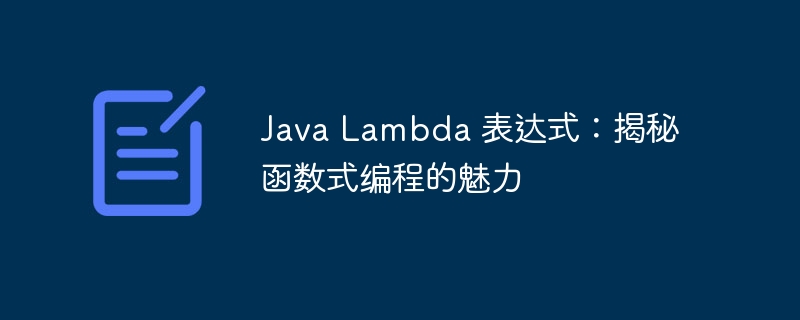

Java Lambda expressions, as the highlight of functional programming, inject new vitality into the Java language. Through concise syntax and powerful functions, Lambda expressions greatly improve the readability and flexibility of Java programs. PHP editor Xiaoxin will reveal the charm of Lambda expressions in this article and lead readers to deeply understand the essence of functional programming. With the continuous evolution of the Java language, functional programming has become an important skill in Java development. Let us explore the mysteries together!
Before Java 8, Lambda expressions did not exist in the Java language. The introduction of Java 8 has completely changed this situation. Lambda expressions, as a kind of syntactic sugar that simplifies abstraction, have shined on the programming stage ever since.
A Lambda expression is essentially an anonymous function that has no explicit name and does not belong to any class or method. The basic syntax of lambda expression is:
(parameters) -> expression
Among them, parameters represents the parameter list and expression represents the expression.
Lambda expressions are widely favored mainly due to the following advantages:
Lambda expressions have a wide range of application scenarios. Common situations are listed below:
You should pay attention to the following points when using Lambda expressions:
Lambda expressions, as an important feature introduced in Java 8, have completely changed the way Java is coded. It is simple, efficient, and versatile, giving the Java language more powerful functions and broader application prospects.
The above is the detailed content of Java Lambda Expressions: Uncovering the Charm of Functional Programming. For more information, please follow other related articles on the PHP Chinese website!




